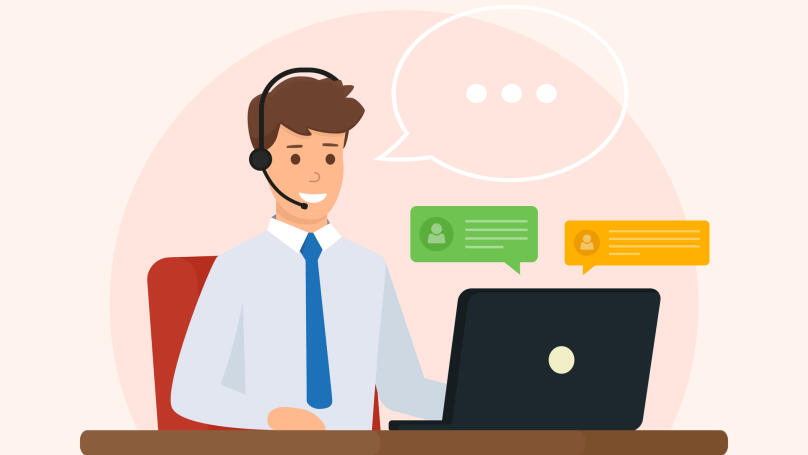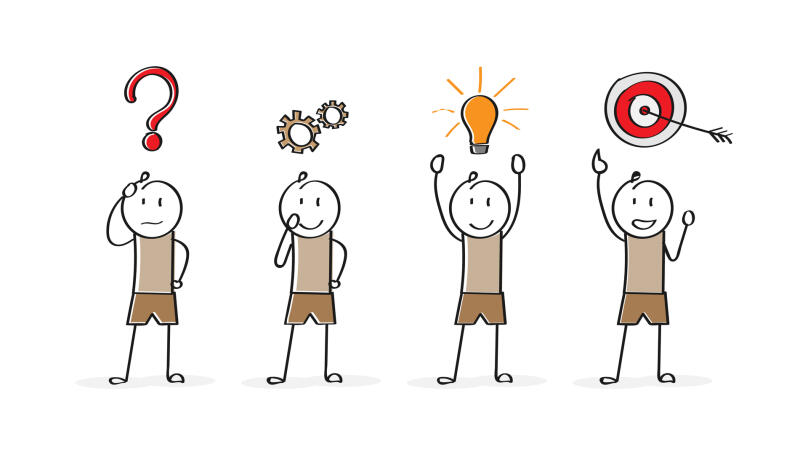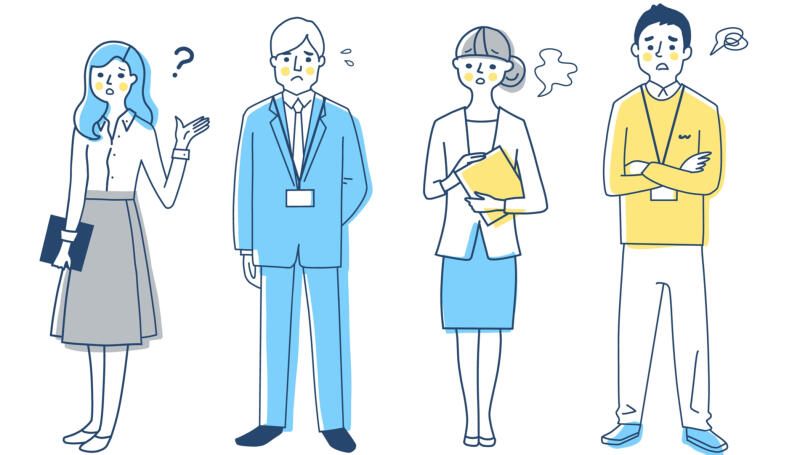Close ended questions for sales
Close ended questions - the meaning

Closed-ended questions are questions to which the customer can answer either "Yes" or "No". In other words, the term "closed-ended question" means you get a specific answer, rather than an abstract one, which can help you adjust the sales process. Some customers perceive a closed question as an attempt at manipulation, so you as a salesperson should handle it with kid gloves if you are using this tool as a sales technique.
What are close ended questions for?
Use closed-ended questions:
- To detect a potential customer's implicit pain.
- To identify the needs of the potential customer.
- To guide the buying process to increase the final check.
- To screen candidates for employment at the job interview.
When to use close ended questions
It is better not to ask closed-ended questions at the initial stage of the sale and during the transaction's closing. For example, instead of asking "Can I help you?" - which is highly likely to lead to the answer "No," you can say: "I see you are choosing an office chair. What characteristics should the model you are looking for have?" It is better to combine closed and open-ended questions not to miss the mention of an important customer's pain.
Types of close ended questions

Closed-ended question forms include the following types:
- An agreement question (or a denial question)
Its main purpose is to clarify a fact. For instance, ask "Are you only considering models of armchairs from this manufacturer?" to receive confirmation of your hunch or to refute it. Such a question allows you to understand how to build further communication with the potential client. Other types of close ended questions, in one way or another, repeat this type. In psychology, there is automatically a trusting attitude towards the person interested in your opinion.
- A clarification question
A so-named "clarification question" enables the clarification of information from which you can understand the main pains of a potential customer. It will also help convince the buyer that you, as a seller, know much more about the product than they do. A series of clarifying questions about characteristics and features, such as the chair model a customer wants, will demonstrate your expertise and build customer confidence.
- A fixation question
This type of closed-ended question allows you to repeat the benefits of the model chosen by the customer and convince the buyer that they need this particular office chair. Reiterate the characteristics and features of the model previously mentioned by the customer, clarify whether you have understood them correctly, and tell them what product would be the ideal choice.
Where and why are close ended questions used?

Close-ended questions are useful if the customer or partner is in their shell and reluctant to talk. With their help, you may even be able to move a casual window-shopper forward a conversation and end up successfully closing a sale.
The purpose of closed-ended questions is to test your hypothesis or assumption by unearthing the customer's implicit pain. This type of question anticipates a short and unambiguous answer.
The close-ended type of questions allows you to quickly check the customer's or partner's attitude towards controversial points (such as a more expensive purchase) and easily control the vector of your conversation. Some salespeople also use alternative "leading questions" (or often called "tag questions") to get a clear "Yes" in response.
Rhetorical "tagged" close-ended questions have "isn't it?" or "right?" at the end, implying that the potential customer will agree with your assumption. Your correct judgement of the person's pain will help the buyer trust the salesperson and even accept their choice as their own decision. Closed questions include a simple clarification without a "did I understand you correctly?" at the end.
What are the advantages of close-ended questions?
Close-ended questions limit the interlocutor's response. What does this (implicit to the buyer) restriction mean? It gives you the ability to control the conversation and highlight pains that may not be obvious to the potential buyer. By doing that, the potential customer voluntarily passes the information on to you, making sure you have expertise in the process.
Another benefit is the voicing of thoughts that may not have occurred to the potential customer before. A close-ended question will not provoke an overly lengthy response. This implies that the interlocutor will switch to a topic unrelated to the product's sale.
The disadvantages of using close-ended questions
Closed-ended questions do not allow for a more voluminous response in which the client could casually mention their pain. They focus on "getting at" an unfilled need, and this can discourage a "cold" visitor who isn't ready to make a purchase or talk about it. This type of dialogue is somewhat like an interrogation, which can be a barrier to closing the deal. Additionally, closed questions cannot be called a universal sales tool - even the addition of a "tag" does not guarantee a positive answer and a final purchase.
Examples of close ended questions for sales

- Are you happy with the offer?
- Do you already know what characteristics the chair you are looking for should have?
- Have you looked for an office chair before?
- Have you had a chance to get acquainted with our range of products?
- Am I right in assuming that we have reached an agreement on this point?
- May I take it that I have eased your concerns?
- Are you happy with the chair?
- Are you unhappy with the cost of this model?
- Do you expect to spend up to a maximum of 10,000 rubles on a purchase?
- Maybe you need more information about this model?
- Do you mind if I show you products that match the previously mentioned specifications?
- Your final decision will depend on the cost of the office chair, right?
- There is a way to reduce the purchase price. Would you like to know about it?
- You need to fill in a small questionnaire to reduce your purchase price. Do you mind if I include your telephone number in the questionnaire from our shop chain?























